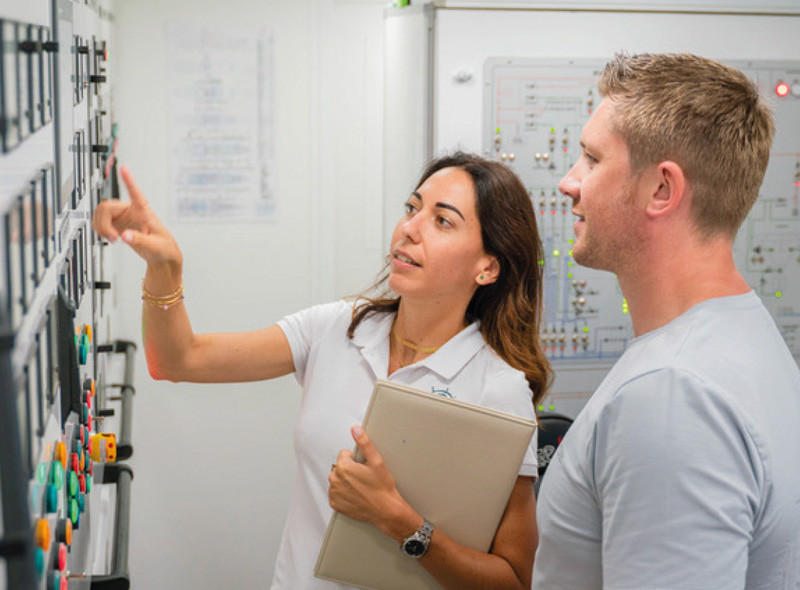La Belle Classe Academy: Preparing for the yachting of the future
From the coastal license to the art table settings, La Belle Classe Academy offers training for shipowners, captains, heads of department and crews.
Basic safety training, navigation techniques, courses on the weather as well as team building: since 2015, shipowners, yacht managers and crew members have been able to follow personalised, qualifying courses in Monaco. La Belle Classe Academy, located at the back of the Yacht Club de Monaco, offers various fee-based modules. To distinguish itself from other training centres in the region, this school teaches the art of table settings and the codes of good conduct related to sailing, so onboard staff can refine their knowledge of mixology, the major wine and spirit vintages, plus grape varieties and their regions, "all complemented by a tasting of 48 different wines, the objective being to become familiar with luxury products (including cigars, hookah pipes and teas) all the better to serve them to demanding clients.
Reducing environmental impact
Amongst these training courses, the ETYC programme is particularly noteworthy. Its aim is to make yacht crews aware of environmental issues and provide them with concrete solutions to reduce the impact of yachting on the marine environment because, for a 45-metre yacht, consumption over a season is estimated at 5,400 plastic water bottles, 6,000 aluminium coffee capsules, 3,600 paper towels, 6,000 plastic straws and 500 litres an hour of fuel at full speed, the equivalent of 150 diesel cars. “Life on board remains the biggest consumption of a boat and the existing fleet does not yet have the latest technologies which are often very expensive to set up; yet urgent action is needed. A recent WWF study shows that the Mediterranean is the most polluted sea in the world, containing four times more waste than the so-called Seventh Continent of plastic," observes ETYC, aware of the balance to be found in order "not to jeopardise the quality of top-of-the-range service specific to luxury yachting.” Crews must adopt the right gestures. “Thanks to the classes, each participant can immediately implement eco-responsible practices on board to suit the boat, with the aim of saving time, money and storage space, whilst improving the quality of customer service.”
According to Claire Ferandier-Sicard, founder and CEO of ETYC, we can easily reduce air pollution by 50%, in particular with the use of biofuels, and water consumption by 30%, using filters for example. The young woman, who hopes to have her training certified by the IMO, already has six boats and 100 crew members to her credit. A 92-metre megayacht and a 50-metre private vessel should soon be added to this list. In addition to potential subsidies – the Monégasque state finances up to 70% of crew training ranging from €250 to €500 per day via the Green Fund – the audit and training programme developed by this Monaco Tech-incubated company has a hard-hitting argument to appeal to the owners of these outward trappings of wealth: "not to be targeted by activists." In May, protesters sprayed the Elements megayacht (estimated at $125 million) with red and black paint. “We will launch a platform by the end of 2023 where trained captains can communicate the actions they have conducted to reduce the environmental impact of their boats.”
by Milena Radoman - Monaco Economie

© La Belle Classe Academy
